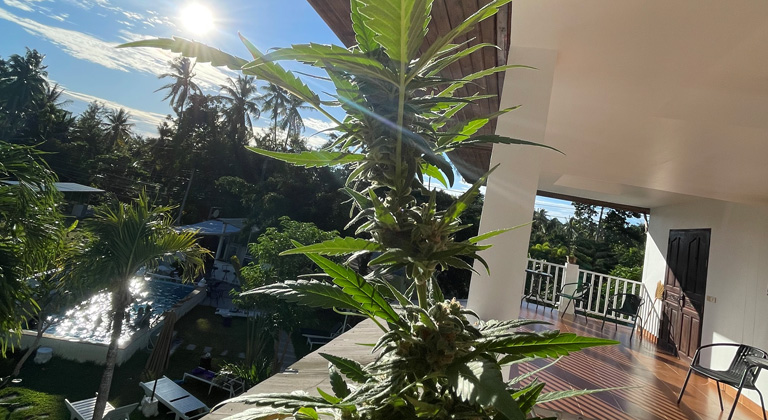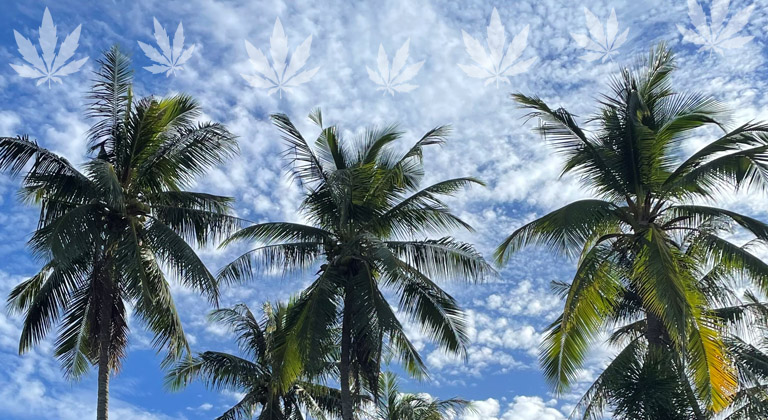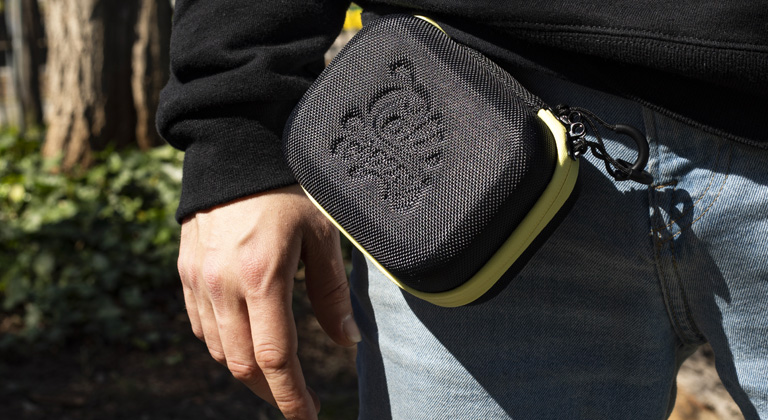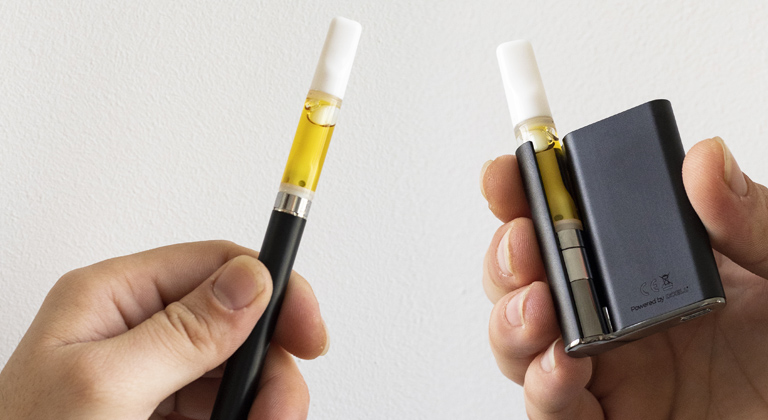On June 9th, 2022, Thailand passed a milestone by becoming the first Asian country to decriminalize cannabis, removing it from its list of narcotics. This measure, which surprised the entire world, led to the release of thousands of prisoners convicted of offenses related to the plant and placed the country in the spotlight of investors from around the world.
This move followed the legalization of cannabis for medicinal use in 2019 and sparked a “green gold rush” for many. However, the legislation is somewhat different from other countries that have regulated the recreational use of this plant, and after a year, there are still gray areas that are subject to analysis. Let’s take a look at the Thai regulation regarding recreational cannabis use.
Cannabis Law in Thailand
Cannabis is a plant that could be considered “native” to Thailand, as it has traditionally been grown in the country. Therefore, many modern hybrids contain the genetics of Thai Landrace strains.
Thai legislation considers hemp and cannabis to belong to the same species, and for legal purposes, hemp is considered a cannabis plant with less than 1% THC. Traditionally, this plant has been used in the country for therapeutic purposes, such as pain relief and treating insomnia, among other ailments.
The tradition of cannabis use in Thailand persisted despite its past criminalization, to the extent that the government itself participated in the free distribution of cannabis cuttings to the country’s residents to celebrate legalization.
Nevertheless, the regulation naturally comes with a set of rules for home growers, producers, dispensaries, and more, which is intended to be expanded with a new set of regulations to be implemented starting from December 2023/January 2024.
What is Allowed in Thailand in the New Cannabis regulation?
Thai cannabis law is not as simple or specific as some might have expecedt when the new change of course was announced to the world. It’s important to take into account and understand some details of the legal framework, especially for tourists and foreigners who intend to operate or engage in any cannabis-related activities in the country.
- Citizens of Thailand are allowed to grow cannabis in their homes, gardens, or balconies, but they must register on the government’s “Plook Ganja” app to do so legally. They can also consume the products of their harvest in private places and not in public areas.
- Both locals and tourists can purchase cannabis flowers or solvent-less extracts at authorized locations (dispensaries) by presenting identification or a passport to verify they are at least 20 years old.
- Tourists visiting Thailand are required to comply with cannabis regulations for their own safety.
- Companies wishing to grow cannabis must first obtain a license from the Thai Food and Drug Administration.*
- Authorized restaurants are allowed to serve food containing cannabis, but according to the law, cannabis buds cannot be used to prepare any dish; however, other parts of the plant (such as leaves) can be used. The establishment is obligated to inform its customers about any dish containing cannabis. Cannabis terpene profiles like those from Cali Terpenes are allowed for use in food and beverages, as they are considered food aromas, similar to those already used in the Thai food industry.
- Since cannabis is legal throughout the country, it’s also legal in any province. Therefore, if you need to take domestic flights or ferries to locations within Thailand, you can carry your cannabis flowers or extracts with you. However, you should avoid causing any disturbances with odors, as they could lead to confiscation of your cannabis or worse. For this reason, we travel with our odor-proof case in collaboration with Oz.eta. This travel companion not only helps us discreetly carry our cannabis but also protects it from being crushed, water splashes, and allows us to keep everything related to the plant in one place without losing anything, which is really convenient when travelling.
- Only cannabis products approved by the Thai Food and Drug Administration (FDA) are legal for sale. Cannabis products for medicinal purposes (with pharmaceutical-grade quality) are available to patients in both public and private clinics and hospitals, as well as in pharmacies.
*Another important point to consider, especially if you intend to start a business (whether cannabis-related or not), in Thailand, the company must always be majority-owned (51%) by a resident of Thailand.
What is NOT allowed in Thailand Regarding Cannabis?
The regulation of cannabis in Thailand has been established with certain parameters primarily aimed at protecting public health. Here’s what is not allowed:
- Individuals under 20 years of age, pregnant women, or breastfeeding mothers cannot consume cannabis unless it is prescribed by a medical professional.
- Cannabis flowers (buds) are classified as a controlled substance for commercial purposes, including distribution and research. Therefore, a permit from the Department of Traditional and Alternative Medicine of Thailand is required for such activities.
- While recreational cannabis consumption is allowed in private settings, it cannot be done in public spaces or many designated areas. Violating this law could result in a fine of up to 600 euro or up to 3 months of jail, or both.
- Thai authorities warn that the psychoactive effects of cannabis can occur within the first 30 minutes after consumption or up to two hours later, depending on the method of consumption (ingestion, inhalation, etc.). They recommend avoiding driving after consuming cannabis products, as its effects can impair motor coordination and reflexes.
- Importing cannabis plants remains on the list of narcotics, requiring a permit from the Ministry of Agriculture.
- Only the growth and use of cannabis plants for domestic purposes have been excluded from the list of narcotics. Therefore, importing cannabis seeds for commercial use requires a permit from the Ministry of Agriculture and Cooperatives.
- Manufacturing and/or selling extractions using solvents like BHO or synthetic THC like HHC is not allowed.
Cali Terpenes’ Experience with Cannabis Regulation in Thailand
During our stay in August 2023 in this beautiful country, we were able to firsthand witness how cannabis regulation, legalization, and decriminalization are currently functioning in the Asian nation.
Despite the regulations mentioned in the previous points, the truth is that the cannabis “boom” that has occurred since the legalization in this country, without very specific regulation, has created a truly utopian cannabis paradigm where thousands of dispensaries, cannabis producers, home growers, and other very curious proposals coexist (some truly fantastic ones that we haven’t seen in other countries with legal cannabis), such as cannabis hotels, bars, viewpoints, and other places where acquiring and consuming cannabis is allowed based on consumption in private places where attendees are consumers and agree with it.
Furthermore, as we will explain later in this article, currently, the regulation of cannabis is at its sweetest for visitors, waiting for the new regulatory package that will be implemented at the end of 2023. This means that currently, you can find flowers and extracts even on the most remote island in the country. Flowers and derivatives of this plant are currently sold in these dispensaries, but also in many bars, restaurants, shopping centers (some of which are specifically cannabis stores), tattoo studios, and more. But starting at the end of the year, they may only be available for purchase in licensed dispensaries.
In any case, although there are still some legislative details to be worked out and prices of cannabis products may need to be reduced, we have been delighted with this “golden moment” of cannabis regulation in Thailand. In a way, it reminded us of the months of transition in California when it was moving from medicinal regulation to recreational regulation and there were not yet as many rules applied to the plant, allowing for greater enjoyment by conumers without a doubt.
A Feared Change of Course
The cannabis industry in Thailand could be facing new changes and restrictions due to the “Avanza” Party, a coalition that won the general elections last May. Since cannabis was removed from the list of narcotics in June 2022, thousands of cannabis stores have opened in the country.
Over a million people have registered on the app to legally grow cannabis, and the sector is estimated to have a value of $1.2 billion by 2025, according to data provided by the Thai Chamber of Commerce.
However, some political figures are concerned because they believe that the lack of clarity in cannabis regulation may have left the industry unchecked. The increase in cannabis consumption has been criticized (which may or may not be true, as most cannabis consumption is possibly by tourists), while the market saturation with imported cannabis reduces the profits of local growers.
On the other hand, the Advance Party coalition has proposed including cannabis as a narcotic in the list, something that has raised uncertainty and fear among those who have already invested in the sector.
Despite this, both dispensary and store owners in Bangkok, as well as recognized activists in the country, maintain optimism and emphasize the benefits that cannabis regulation has brought to many families.
To reassure people, the Avanza Party has stated that they will protect those who comply with the regulations and that the new law will focus on eliminating unauthorized street vendors and illegal imports. Furthermore, they have already taken some measures, such as requiring identification documents to be presented at cannabis points of sale to verify that customers are of legal age, which is 20 years old.

What do you think of the regulation in Thailand? Our trip in August 2023 has allowed us to enjoy a very permissive and utopian cannabis regulation (from our point of view, simply great), which may become more restrictive in a few months.
Leave your comment and share your opinion with the community.
Cali Terpenes









